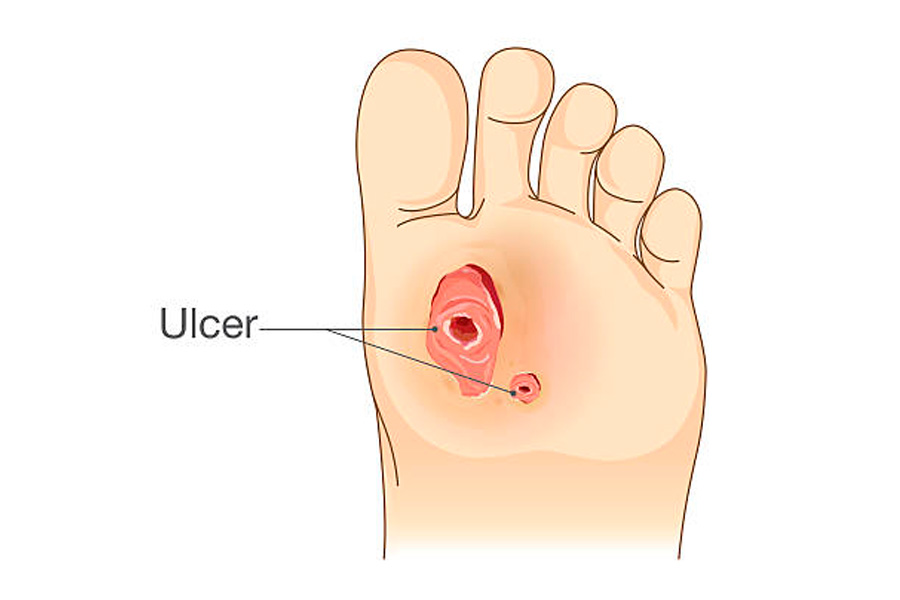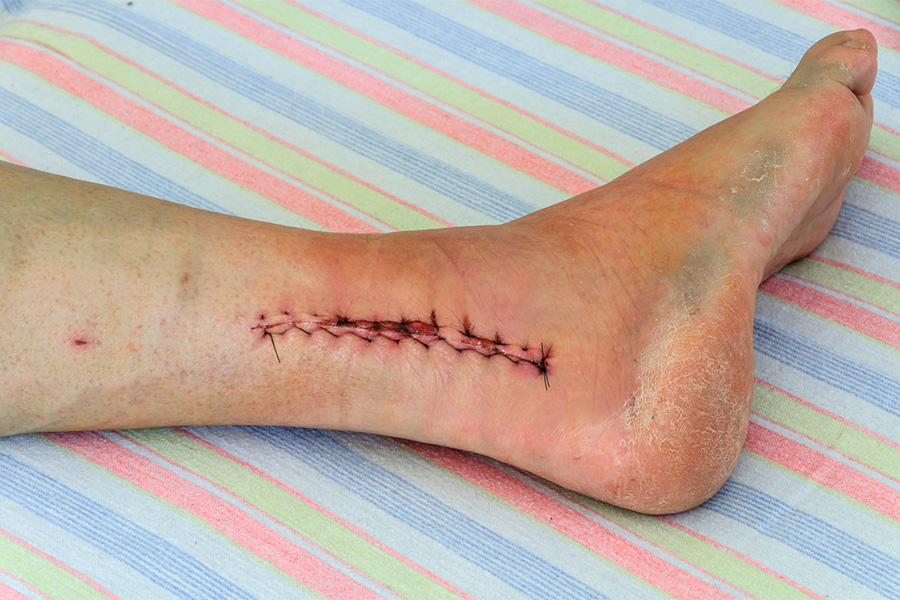Foot ulcers are a common and often serious complication of conditions such as diabetes. The open sores that do not seem to heal can make your daily life difficult. If left untreated, it can lead to severe infections that could spread to other parts of your foot. But how exactly is this condition treated?
In this article, we’ll discuss the different treatment options and management techniques that can help patients with foot ulcers.
Noninvasive Treatment and Management
There are several noninvasive treatment options for foot ulcers. One effective treatment is wound care.
Wound Care
Ulcers are less likely to get an infection if they are covered with dressings and kept moist. During home care, you should wash the wound with mild soap and change the bandages when necessary.
Off-Loading
Another way of treating foot ulcers is by removing pressure from the affected area. Known as “off-loading,” which allows the wound to heal better.
You will be given a special cast meant to remove pressure from your foot while allowing you to perform some activities. You may also use a wheelchair or crutches if needed.
Elevating the affected foot is another good way to reduce pressure on the ulcer.
Medications
You may also be given medication to treat your foot ulcer. Antibiotics may be recommended to fight off infection since ulcers are prone to them.
In addition, you may be prescribed antiplatelet or anti-clotting medicine. These medications help prevent your wound from clotting, which will cause it to dry.
Healthy Diet and Sufficient Hydration
Your doctor may also recommend drinking plenty of water every day. A healthy diet is also advised to promote overall health and healing.
Surgical Procedures
If a foot ulcer becomes severe, there may be a buildup of dead or infected tissue around the wound, also known as gangrene. Your podiatrist will work to preserve as much of the affected foot as possible.
They may perform any of these surgical procedures:
Debridement
When foot ulcers have gotten severe, the removal of infected tissue will be necessary. Once the infected parts are removed, your wounds may be able to heal better. This process is done through a procedure called debridement. Your podiatrist will cut away any dead or infected skin or tissue using a scalpel, laser, or other tools or methods.
Other ways your podiatrist can perform this procedure can include using chemicals known as enzymes. They can also use wet-to-dry dressings in the area. These are wet dressings that will eventually dry up. The dressing will then be removed, allowing the removal of the affected tissue.
Amputation
The most extreme treatment for foot ulcers is amputation. This option is only considered when other treatments fail to treat or manage the condition.
Amputation involves removing the part of the foot where the ulcer has led to severe tissue damage. However, removing the entire affected area can be considered if it will stop the spread of infection.
What Causes Foot Ulcers?
Foot ulcers can be caused by several conditions. A very common cause is diabetes, as diabetic people are prone to this sort of wound.
Diabetes can lead to foot ulcers due to the increased levels of sugar in the blood. Elevated blood sugar levels narrow your blood vessels, which leads to decreased blood and oxygen flow to your feet. This prevents any wounds in the area from healing properly.
High blood sugar levels can also lead to something known as neuropathy or nerve damage. When this happens, you can suffer a loss of sensation in the affected area. You may not even realize your feet are injured, leading to wounds left untreated.
Aside from diabetes, the bacterial infection called cellulitis can also lead to foot ulcers. Another possible cause is a peripheral arterial disease, the clogging of the arteries due to fats and cholesterol.
Your doctor can help you manage your condition, as well as your foot ulcers.
Treatment for Foot Ulcers Near You in Cincinnati, OH
Managing and treating foot ulcers can be difficult. This is especially because it affects a part of your body that you use every day. It is important to catch these wounds as early as possible to prevent the need for severe measures. With this in mind, you should seek medical attention the moment you notice any sign of foot ulcers.
Are you in need of treatment for foot ulcers in Cincinnati? Come and receive treatment from our skilled podiatrists at Cincinnati Foot and Ankle Care! Our medical staff has lots of experience dealing with diabetic foot ulcers, so personalized treatments for your condition are guaranteed. With 18 locations across Cincinnati, you can receive the foot care you deserve by calling the office nearest to you.
You can also fill out our convenient appointment request form to schedule a consultation with the best podiatrist in Cincinnati. We look forward to helping you live your best life!





